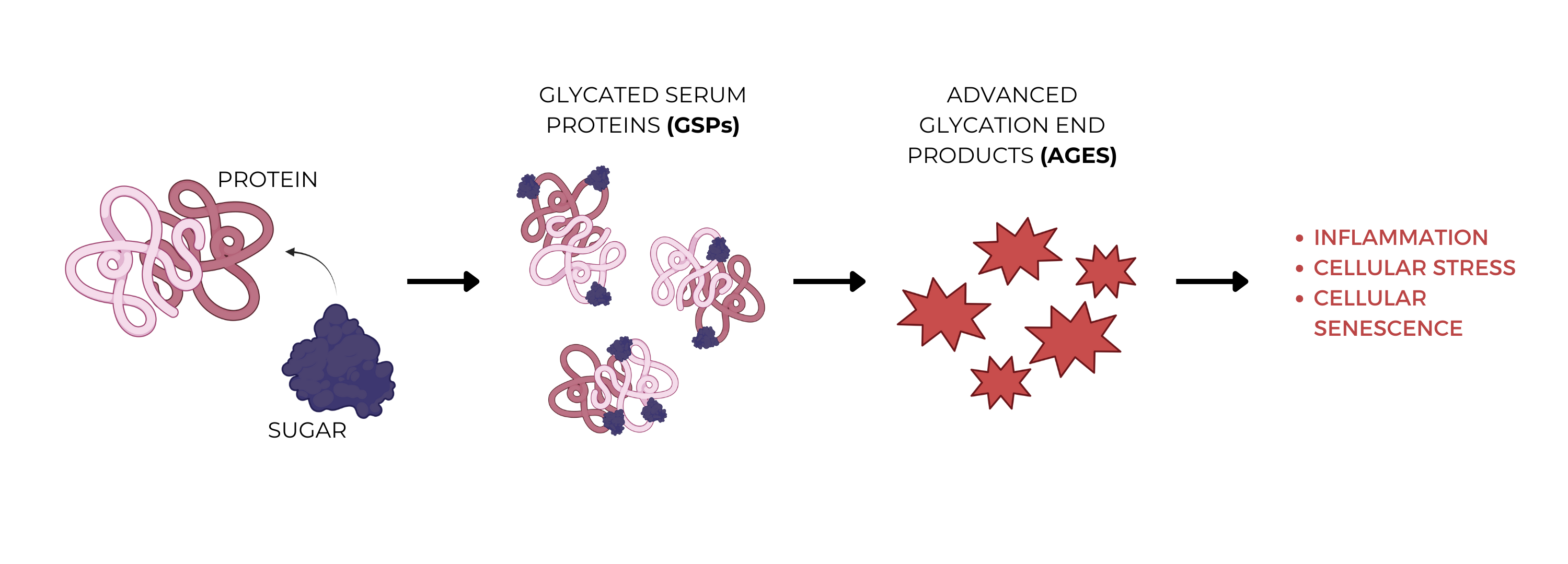Proteins are essential for cell function and during aging they become damaged and stop functioning correctly. This article will look at glycation and how this damages proteins, why this drives cellular aging and how the NAD+ supplement Nuchido TIME+ reduces glycation.
Proteins are critical for cell function
Proteins are vital to life, they power everything that occurs in our cells. Your DNA is simply the instruction manual for how to make proteins. Studies estimate that your DNA creates around 80,000 different proteins.
It is important to remember that the 3D shape (which is based on how they are folded) and structure dictates the function of proteins, if this is altered in some way they cannot perform their function anymore.
Proteins are continuously exposed to damage, so there are repair mechanisms that detect the damage and refold the protein or remove the damaged protein from cells. This quality control system is called proteostasis. The effectiveness of this maintenance system is known to decline with age, causing broken and misshapen proteins to accumulate in cells. Maintaining functional proteins is so important to cellular health that loss of proteostasis is one of the 12 Hallmarks of Aging.
Proteostasis = ‘proteo’ means proteins ‘stasis’ means maintaining normal conditions
Glycation and AGES damage proteins
Glycation is a reaction in which sugar molecules get stuck onto proteins within our cells. This causes them to stiffen and change shape, preventing them from functioning correctly.
Eventually these glycated proteins (called GSPs) can form AGES (advanced glycation end products), which are toxic molecules that trigger inflammation and cellular senescence, both of which are key drivers of the cellular aging process (two other Hallmarks of Aging).

For example, when collagen and elastin proteins in the skin become glycated this causes the skin to lose firmness and elasticity. This can trigger inflammation and cellular senescence which damages the cells that produce collagen (fibroblasts) causing collagen levels to further decline.
Nuchido TIME+ reverses glycation
Studies show that diets high in sugar accelerate glycation, which is why reducing levels of sugar in your diet can be very beneficial. Fasting and exercise are also beneficial as they activate the protein recycling system (autophagy), which breaks down and removes the damaged proteins from the cell, preventing them from accumulating and causing further dysfunction.
In our clinical trial we measured participants levels of glycated serum proteins and found that Nuchido TIME+ reduced glycation following 28 days of supplementation. This is because NAD+ is known to activate the protein recycling pathway (autophagy) and other protein repair pathways.
Overall, supporting optimal protein function is critical to maintain cellular health. Research shows that reducing consumption of sugar, fasting and exercise can activate the repair and recycling systems to protect your proteins.
